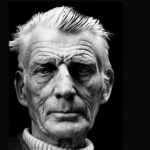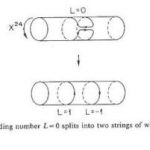end construction
Nominalisms Ancient and Modern: Samuel Beckett, the Pre/Post/Modernist?

While describing the work of Beckett as deeply influenced by nominalism, Holly Phillips explores “ineffable permutations of intellectual history” and demonstrates how medieval philosophy has deeply influenced twentieth century literature. Simultaneously, Phillips undermines the idea that nominalism’s dismantlement of universals has finally been accomplished by postmodernism.
Global Warming, Globalization, and Environmental Literary History
Lance Newman suggests Ecocriticism shares a problematic assumption with "green" capitalism: the idea "a livable future will result from billions of individual ethical decisions." Here he traces a burgeoning critical alternative that investigates the historical connections between global capital and the shifting structures of the "ecosocial."
Hybrids at hand: the problem of representing the heterotic superstring

Contrasting conventional notions of representational realism with the leaps of imagination underlying contemporary physics, Sean Miller explores the necessary role of an imaginary in sting theorists' search for a coherent "theory of everything."
Thinking Past Ourselves: Ecology and the Ethics of Cross-Species Partnerships
John Bruni evaluates current proposals for animal rights and green capitalism, questioning whether the legal and economic discourse with which the question of animal life as thus far been bound up will ever allow us, as Cary Wolfe proposes, to think past ourselves.
Introduction to Annotated Bibliographies
This new thread, edited by Henry Turner and introduced by Joseph Tabbi, presents in short order what scholars today in the field of literature, science, and the arts are reading and viewing. Some of the citations appear online, and by 'enfolding' these references, ebr intends to build a profile of the field as it evolves, available to ebr readers for further annotation and construction.